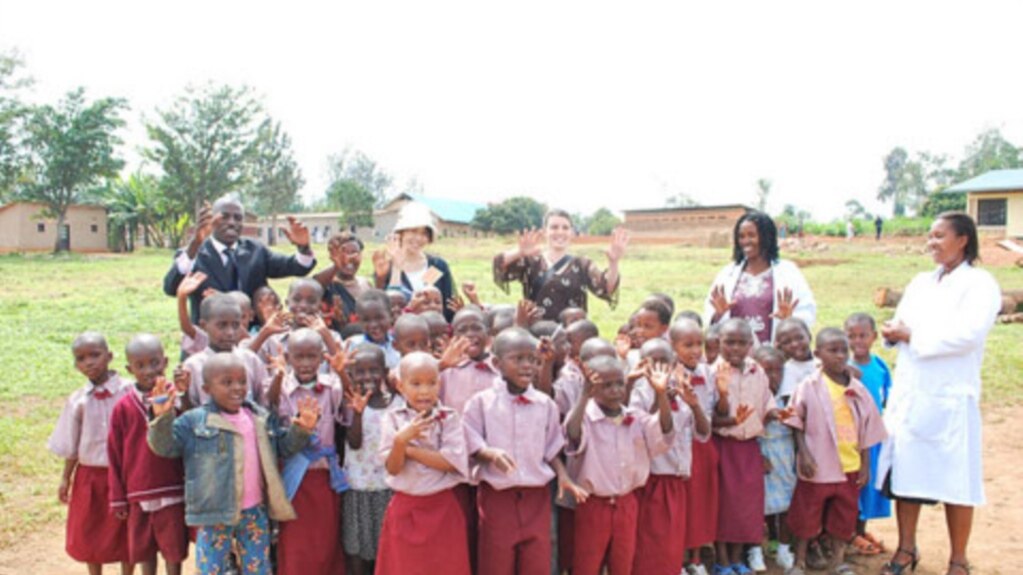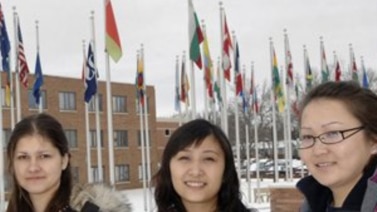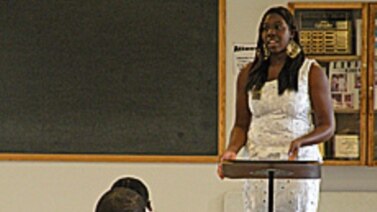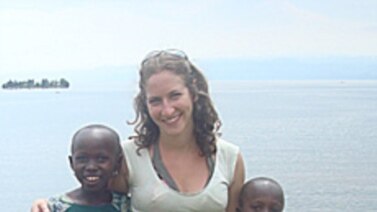
This is the VOA Special English Education Report.
A three-year effort in developing countries will seek to put twenty-five million children in school for the first time. Another goal of the Global Partnership for Education is to train six hundred thousand teachers.
The partnership recently awarded nearly one hundred seventy million dollars in grants to seven countries. These were the first grants since the organization changed its name a few months ago from the Fast Track Initiative. Fast Track was founded in two thousand two.
Charles Tapp is an adviser to the partnership.
CHARLES TAPP: "There had been a lot of evolution of the old Fast Track Initiative, which was essentially something of a donors club, I think. And what was clear from our perspective [was] that we were not just a funding entity. This was indeed a partnership."
The partnership includes almost fifty developing countries, as well as donors, civil society groups and teacher organizations. It also includes private companies, international development banks and United Nations agencies.
The latest grants were awarded to Afghanistan, Ivory Coast, Guinea-Bissau, Mali, Moldova, Mongolia and Timor-Leste. Mr. Tapp says the grant to Afghanistan is worth almost fifty-six million dollars.
CHARLES TAPP: "[The] Afghanistan government has made a very strong commitment of allocating as much of its own resources as it can for education. Historically, Afghanistan has had some very, very well-educated people. [They] tend to come from sort of the urban centers. But obviously given the recent troubles and problems in Afghanistan over the last twenty years or so, the quality of education has plummeted."
Mr. Tapp says Ivory Coast received forty-one million dollars to help in its recovery from recent political violence.
CHARLES TAPP: "One of the key areas that we're actually providing support for under this program is actually looking to build and also repair classrooms, provision of textbooks. And another thing that we're looking at has been working with the government to try and get school feeding programs in place. You get a number of areas of Cote d'Ivoire with very, very poor nutritional standards."
More countries are now looking for help from the partnership.
CHARLES TAPP: "Unfortunately, given the current global financial climate and the fact that there are still sixty-seven million kids out of school around the world, demand for our financing seems to be increasing rather than decreasing."
But many donor countries are reducing their spending. So Mr. Tapp says the global partnership must show them that their money is being well-spent.
CHARLES TAPP: "I think the fundamental thing that is important to do is actually to be able to show people who are providing financing that their funds are achieving success. And it's very clear that in the Global Partnership partner countries that you're seeing more kids getting to school for longer and for a better education."
And as education improves, he says, so does the health of a country.
The Global Partnership for Education plans to make more grants in twenty-twelve -- first in May or June and then in November.
And that's the VOA Special English Education Report. We have captioned videos of our reports and other programs at the VOA Learning English channel on YouTube. I'm June Simms.
Contributing: Joe De Capua



